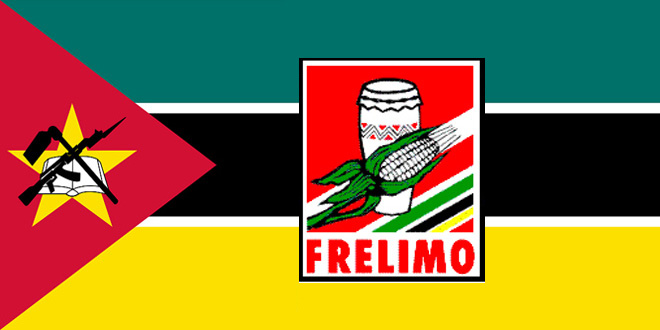Turning Civil War Into Civil Society: Conflict Termination and its Effects on the Postwar Society
The year 1991 marked the end of the Mozambican civil war. After more than 15 years of fighting between Renamo guerilla forces and the Frelimo government, a period in which nearly one million people died and five million were displaced, leaders of the opposing groups signed the Rome General Peace Accords. As a result, Mozambique experienced a remarkable shift in the configuration of its economic and political institutions. In a country once colonized and exploited by Portugal, the peace agreement established a multi-party democracy, integrated former belligerents into the legitimate state security apparatus, and allocated power between Frelimo and Renamo in such a way that kept both groups from reverting to war. By most accounts, the Mozambican success can in part be traced to the settlement parties reached to end the war.
Although an isolated example, the post-conflict history of Mozambique raises important questions about the ways violent conflicts end, and whether those outcomes dictate the likelihood that a post-conflict society succeeds. Civil wars terminate when one side achieves outright victory, or when an agreement is reached from both sides to put down arms. A pact of this type can assume various forms, ranging from a limited ceasefire to a comprehensive peace accord. In the aftermath of conflict, does who wins, if anyone, matter? Might we expect the growth of a postwar economy and the quality of political and economic institutions in a postwar society to depend on how the conflict ended?
 After all, at stake in civil wars is the power to run the country, determine how future leaders are selected, and set rules that dictate how resources are allocated within society. Had Renamo instead defeated the Frelimo government and decisively secured the authority to govern on its own, would Mozambique today still bear the traits of a relatively successful democracy with favorable prospects for economic growth?
After all, at stake in civil wars is the power to run the country, determine how future leaders are selected, and set rules that dictate how resources are allocated within society. Had Renamo instead defeated the Frelimo government and decisively secured the authority to govern on its own, would Mozambique today still bear the traits of a relatively successful democracy with favorable prospects for economic growth?
Empirical tests designed to answer this question offer evidence that suggests negotiated peace may lead to more inclusive institutions than cases of outright victory. Inclusive institutions refer to political systems that are pluralist and sufficiently centralized, and to economic systems that protect private property rights and establish strong rules of law. These institutions are critical components in fostering economic prosperity.
A synthetic control model, which allows for the quantitative construction of the unobservable counterfactual, is a novel approach to investigate this issue, and presents an opportunity to examine how institutions would have performed and what economic growth would look like if a given conflict ended differently. The method targets the exact question raised about Mozambique and the hypothetical of a Renamo victory. In a randomly selected group of 14 civil wars, those that ended in negotiated settlements outperformed their control cases of government and rebel victory almost every time when measuring Polity scores 10 years after the conflict. Within the sample, instances of rebel victory displayed mixed results when compared to synthetic versions of negotiated settlement, but fared much better than the government victory counterfactual.
This result preliminarily suggests that peace agreements lead to more inclusive institutions than outright military victories. When subjected to a simple regression analysis, the relationship between negotiated settlements and government victories is maintained at short time periods post-conflict—two and five years—but at ten years disappears. There appears no significant difference between the effects of peace agreements and rebel victories.
Furthermore, results were insignificant when testing for robustness using an alternative measure of institutions that removes elements of bias inherent to Polity scores, although signs of coefficients on the war outcome variables remained the same. Finally, neither regressions nor the synthetic model provided evidence that a war’s outcome affected the rate of growth achieved by the post-conflict economy. Instead, an overwhelming majority of countries experienced positive growth following a civil war, indicating that there is a positive effect on growth from a war’s end, rather than from the way it ends.
What can we make of these findings? First, from a research perspective, more needs to be done to establish a comprehensive and unbiased measure of the institutions in a given country. And, we must consider employing new and unorthodox empirical strategies, like a synthetic model, to analyze the questions at hand. Doing so will give academics and policymakers alike the tools to draw new conclusions about war termination and post-conflict societies at a case-specific level.The results show that some wars ending in rebel or government victory exhibited more inclusive institutions than any alternative resolution, including peace agreements. Civil wars are exceptionally complex, and it makes sense that what is best for the engines of prosperity in one case may not be most suitable in another. Better understanding the conditions under which government victory, for example, is the best outcome, rather than rebel victory or negotiated settlement, will allow scholars to make more sound policy recommendations.

Second, the evidence that did point to a strong relative effect on moves toward more inclusive institutions for settlements, when coupled with the study of Mozambique, makes a compelling case for public officials to help warring factions negotiate peace. There is solid logic to substantiate this claim, too. Peace agreements by nature create a balance of power in the post-conflict society, which is rife with insecurity and mistrust between formerly combative groups. These pacts often set up power sharing institutions, in which both rebels and incumbents together must coexist and compete with each other nonviolently, thereby fostering a more democratic outcome.For example, the National Election Commission in Mozambique, a conception of the General Peace Accords, was designed initially to include nominations from both Frelimo and Renamo. Additionally, the process through which agreements are reached, by requiring former fighters to repeatedly interact at the negotiating table, may help inclusive institutions emerge and thrive.
If we give credence to the assertion that bringing opposing sides together to ‘force’ peace makes inclusive institutions more likely to materialize following conflict, then an important consideration for policymakers follows. To encourage a comprehensive peace agreement, which allows for truly inclusive and democratic institutions to take root, we may support a process that, in effect, strengthens a government or opposition group with an ideology that stands in conflict with stated policy objectives or moral values. However, inclusive institutions work foremost to constrain those involved. With this in mind, we stand far more to gain by engaging our enemies and increasing the likelihood that democratic institutions develop, than by backing a rebel group or propping up a government fighting to stay in power.

